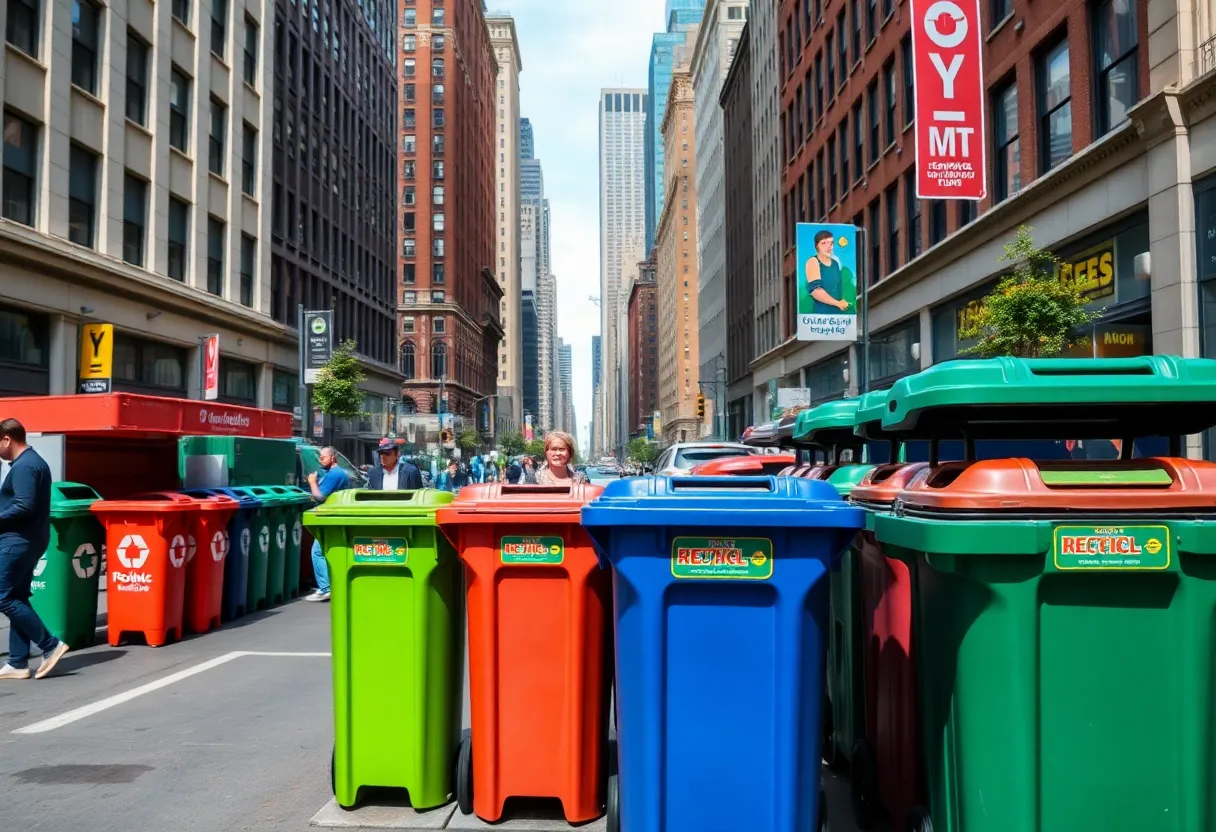News Summary
As the legislative session deadline looms, New York lawmakers are considering two major waste management bills: the Affordable Waste Reduction Act (AWRA) and the Packaging Reduction and Recycling Infrastructure Act (PRRIA). The AWRA aims to modernize recycling and reduce waste affordably, supported by various groups. Meanwhile, the PRRIA is criticized for potentially increasing costs significantly for residents, leading to a heated debate on the best approach to improve waste management while balancing environmental and economic concerns.
New York lawmakers are facing a crucial decision regarding solid waste management as the 2025 legislative session nears its deadline. Two significant bills are under consideration: the Affordable Waste Reduction Act (AWRA) and the Packaging Reduction and Recycling Infrastructure Act (PRRIA). These legislative proposals aim to improve waste management practices and enhance waste diversion within the state.
The AWRA is touted as a practical and affordable solution to the pressing issue of waste management, garnering support from various business and environmental groups. Specifically, the Business Council of New York and the American Chemistry Council have endorsed the AWRA, considering it a responsible approach to reducing waste without imposing severe financial burdens on consumers and businesses.
One of the key features of the AWRA is its emphasis on modernizing recycling infrastructure. It reflects a general consensus among environmental advocates, consumer organizations, and businesses, which is evident from its successful implementations in other states such as Minnesota and Maryland. This legislation encourages producer participation, promoting a shared responsibility model for waste management that can foster cooperation among stakeholders.
Conversely, the PRRIA, while created with good intentions, is characterized as an extreme approach that may lead to significant economic repercussions. A study from York University projects that if enacted, the PRRIA could increase household waste management costs by as much as $732 annually. Furthermore, it is estimated that compliance costs tied to the PRRIA could reach approximately $1.3 billion. Critics argue that the PRRIA’s mandates could result in higher grocery prices, limited product availability, and increased compliance challenges, particularly for small businesses that may struggle to meet extensive regulations.
The proposals come at a time when New York residents are looking for effective solutions to environmental issues without jeopardizing their financial well-being or job security. Many New Yorkers have voiced their desire to protect the environment while still ensuring affordability in their daily lives. In this context, the AWRA provides a framework that aims to set feasible benchmarks for businesses, balancing economic stability with environmental advancements.
Notably, California has paused the implementation of similar waste management regulations due to concerns over potential costs, highlighting the challenges facing states considering stringent legislative measures. The PRRIA in New York could potentially impose even stricter requirements than those previously considered in California.
Supporters of the PRRIA have criticized claims made by its opponents regarding the potential negative economic impact. These proponents describe such assertions as misleading, arguing that their proposed regulation can yield long-term environmental benefits that outweigh short-term costs. However, they face significant pushback from stakeholders who favor the AWRA for its ostensibly more practical approach to waste management.
As New York’s lawmakers approach this critical juncture, they are urged to consider practical solutions that will not place undue hardship on working families and small businesses. The desire for a cleaner and more sustainable future for New York is evident, but there remains a paramount concern to ensure that measures taken do not inadvertently increase living costs for its residents.
In conclusion, as the legislative session deadline nears, the decision on which bill to pursue could set significant precedents for waste management policy not only in New York but potentially across the nation. Balancing environmental goals with economic realities will be a defining challenge for the state’s policymakers.
Deeper Dive: News & Info About This Topic
- LoHud: NY Waste Reduction Must Get Smarter
- The New York Times: Trash, Recycling, and the Global Waste Trade
- Waste Dive: NYC Commercial Waste Zone Announcement
- ABC7NY: NYC Pausing Most Fines for Incorrect Composting
- Recycling Today: New York County Launches Paint Recycling Program
- Wikipedia: Waste Management
- Google Search: Waste Reduction
- Google Scholar: Waste Management Policies
- Encyclopedia Britannica: Waste Disposal
- Google News: Waste Reduction Legislation

Author: STAFF HERE NEW YORK WRITER
The NEW YORK STAFF WRITER represents the experienced team at HERENewYork.com, your go-to source for actionable local news and information in New York, the five boroughs, and beyond. Specializing in "news you can use," we cover essential topics like product reviews for personal and business needs, local business directories, politics, real estate trends, neighborhood insights, and state news affecting the area—with deep expertise drawn from years of dedicated reporting and strong community input, including local press releases and business updates. We deliver top reporting on high-value events such as New York Fashion Week, Macy's Thanksgiving Day Parade, and Tribeca Film Festival. Our coverage extends to key organizations like the Greater New York Chamber of Commerce and United Way of New York, plus leading businesses in finance and media that power the local economy such as JPMorgan Chase, Goldman Sachs, and Bloomberg. As part of the broader HERE network, including HEREBuffalo.com, we provide comprehensive, credible insights into New York's dynamic landscape.





